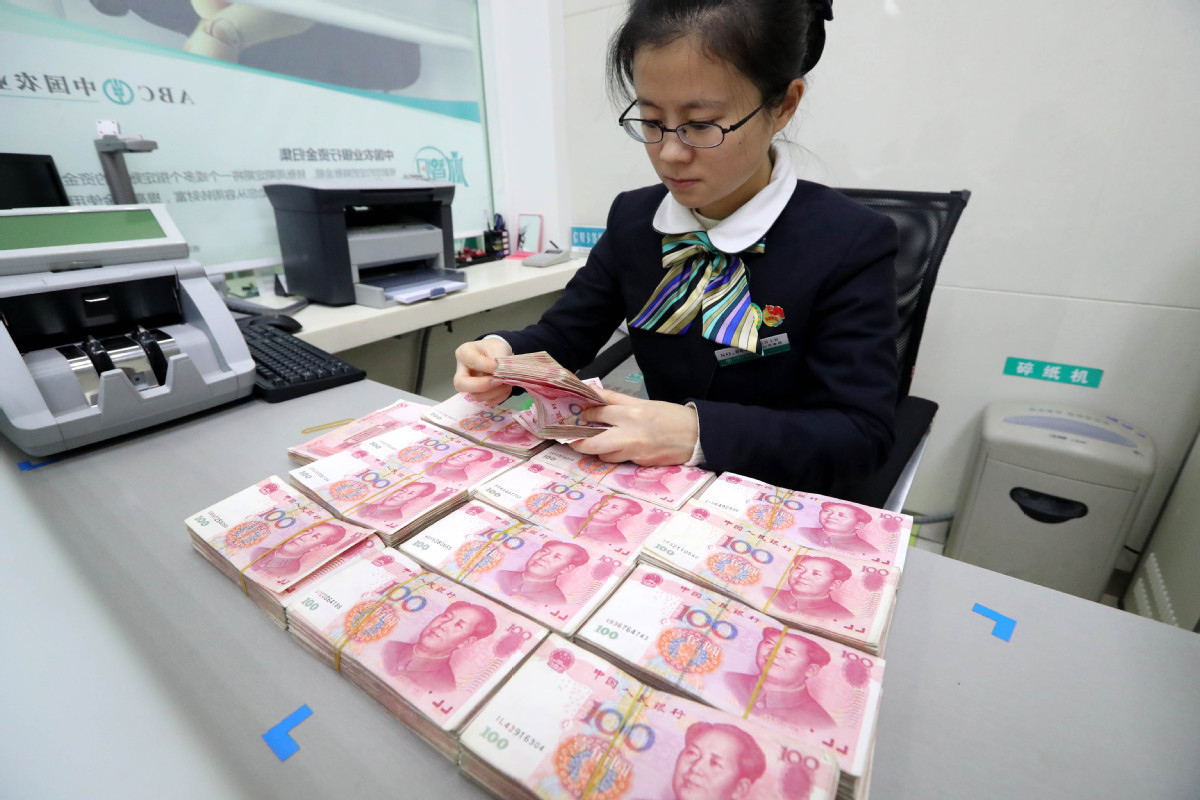China's banking and insurance regulator issued a notice on Friday on tightening regulation of the structured deposit business of commercial banks, in an effort to control risks effectively and protect the legitimate interests of investors.

A clerk counts cash at a bank in Huaibei, Anhui province. (Photo: China Daily)
A structured deposit is a deposit in which derivatives are embedded in. It is designed for investors who are prepared to sacrifice the fixed interest yield from a traditional cash deposit in return for a potentially higher return by taking a certain amount of risk, while also maintaining the capital security offered by deposits.
The returns on a structured deposit may depend on the performance of the underlying asset, such as interest rates, foreign exchange rates and market indices.
The notice issued by the China Banking and Insurance Regulatory Commission (CBIRC) said commercial banks that offer structured deposit plans should be licensed to conduct transactions of the common type of derivatives, which are not used to hedge against investment risk.
Commercial lenders are also required to include the relevant exposure to derivatives transactions in their derivatives business management framework by strictly implementing risk-control measures, such as business authorization, contingency planning and pressure testing, in addition to fully setting aside risk-based capital for counterparty credit risk, market risk and operational risk.
Banks should also rationally assess the potential liquidity demand generated by derivatives transactions and have it included in their cash flow estimates and analysis, according to the regulator.
"The notice is a strong endeavor to benefit both the market and consumers. Structured deposits have experienced robust development in the onshore market. Yet there are cases of misleading product sales. The notice is a further clarification and re-emphasis of current policies. It shows the regulator's aim to strengthen guidance on proper product structures and market conduct, encourage capital inflows to the real economy, improve the efficiency of risk-based pricing and re-emphasize consumer protection," said Jeffrey Peng, managing director and head of China wealth management at Deutsche Bank.
As structured deposits differ from bank deposits or wealth management products, investors should cautiously evaluate their risk when making investment decisions on structured deposits, Peng said.
Structured deposits have grown rapidly in China since 2018 due to heightened competition among banks for deposits and new regulations that ban the issuance of principal-protected wealth management products. At the same time, problems including irregular product management and misleading product sales have emerged, said a CBIRC official.
"The notice will greatly help prevent regulatory arbitrage, a practice whereby companies capitalize on loopholes in regulatory systems to circumvent unfavorable regulations, and therefore lead to a reduction of fake structured deposits by raising the cost," said Zeng Gang, deputy director-general of the National Institution for Finance and Development.
"Moreover, by preventing certain banks from attracting deposits by offering higher returns, the regulator will create conditions for the banking sector to lower financing costs of the real economy, the part of the economy that produces goods and services," Zeng said.
The regulator granted a transitional period of 12 months starting on Friday. During this period, commercial banks are still allowed to issue existing structured deposits but should strictly control the size of existing products and reduce them in an orderly way. This is to ensure that the market impact will not be huge, he said.


